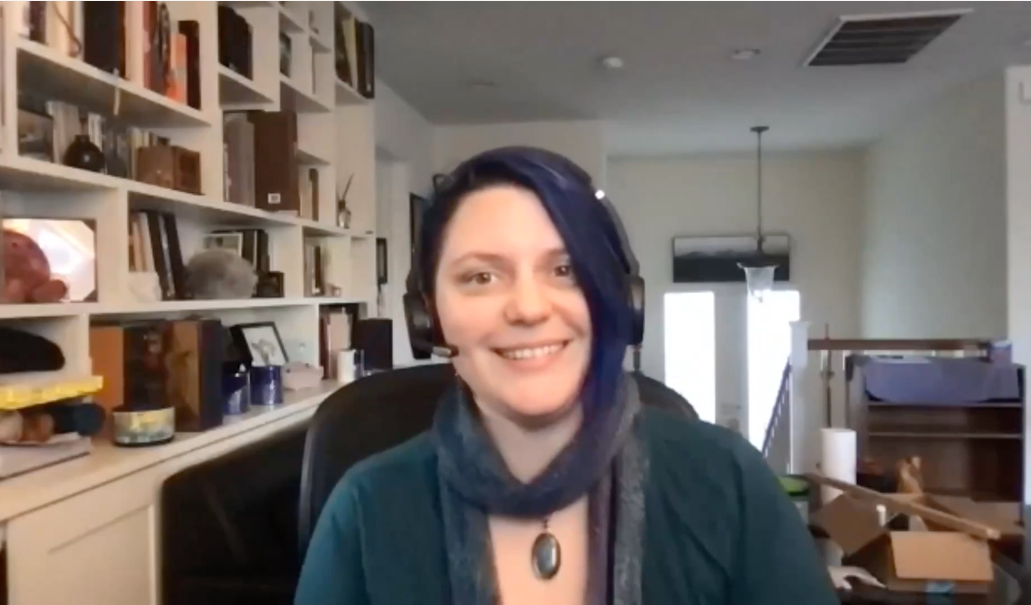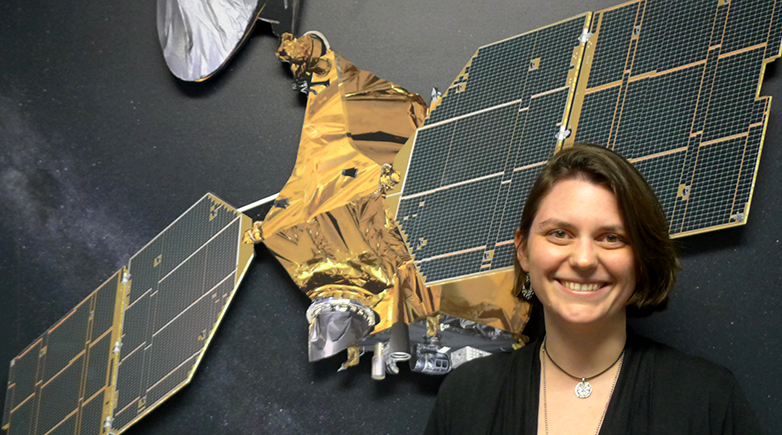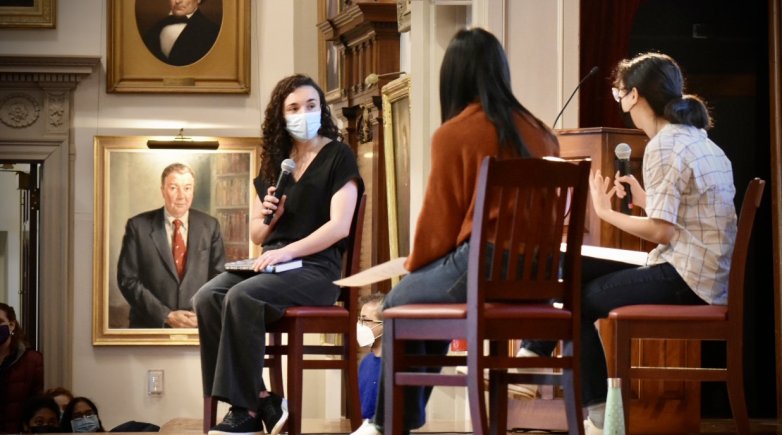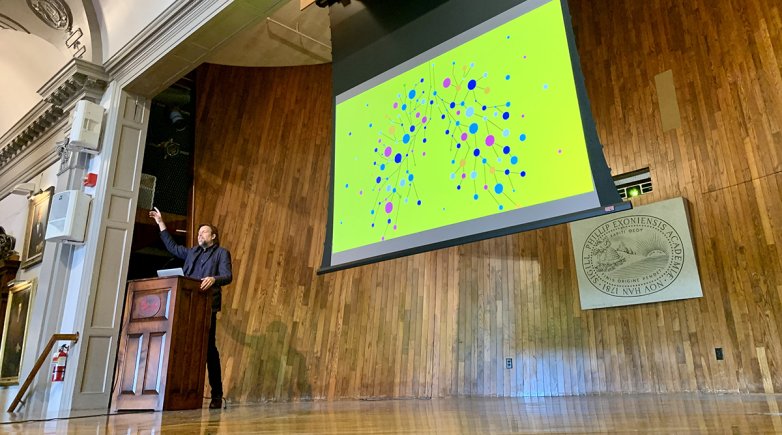Rock star geologist gives Exeter a tour of Mars
Sarah Milkovich '96 is part of NASA's Jet Propulsion Lab rover mission studying the Red Planet.
Sarah Milkovich ’96 has remote learning down.
It’s not that the Exeter grad embraces the Zoom life. It’s that her area of expertise — and her focus for most of the past 15 years — is 200 million miles away.
Milkovich is part of NASA’s Jet Propulsion Laboratory and the lead science systems engineer for the Mars 2020 rover mission that includes the rover Perseverance and the robotic helicopter Ingenuity. A planetary geologist by training, she is part of the team zig-zagging the Red Planet from Earth, scraping rocks, scooping soil and collecting samples for immediate and future study.
>> Watch Dr. Milkovich's full assembly address
Milkovich shifted her virtual focus closer to home last week, addressing the Academy’s assembly over Zoom. She gave Exeter students a tour of Mars courtesy of Perseverance’s imagery and an overview of what she does and what the mission hopes to accomplish.
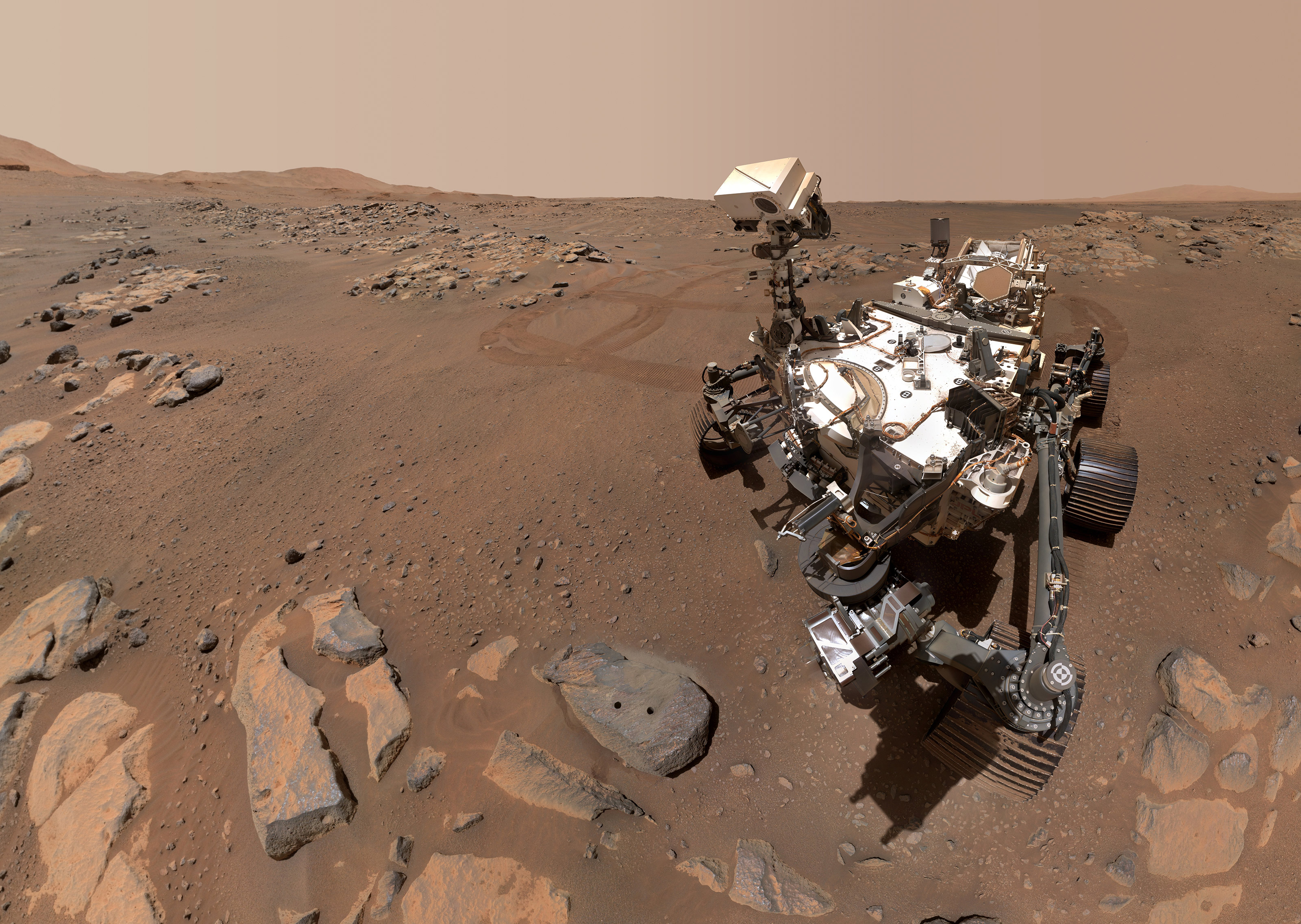
The Mars of today is extremely inhospitable. An early January day — late summer in the planet’s northern hemisphere, where Perseverance roams — ranges from a high temperature of 21°F to a low of -115°F. The Martian atmosphere consists almost entirely of carbon dioxide and is so thin so as to prohibit the existence of liquid water at the surface.
But Milkovich told her audience that Mars of about 3.6 billion years ago is believed to have been a far different place, one very similar to Earth in the same period. “The idea is, that if ancient Mars and ancient Earth were so similar to each other and on ancient Earth, the conditions were right to start life, why couldn't it have started on Mars as well? And that's what Perseverance is all about; trying to answer that question.”
Milkovich’s curiosity of the heavens began while still a student at Exeter. A native of Ithaca, New York, she spent summer breaks at home interning at Cornell University and working on a project that designed a spacecraft that could orbit an asteroid and record its findings. She received her bachelor's degree in planetary science from California Institute of Technology and her master’s and doctorate from Brown University in planetary geology, with studies of ice on Mars and volcanoes on Mercury. She started at NASA’s JPL in 2005.
Most of the past 15 years, she has worked on Mars projects, and the last year has been Perseverance. The second rover, after Curiosity, to scour the planet, Perseverance set down last February.
